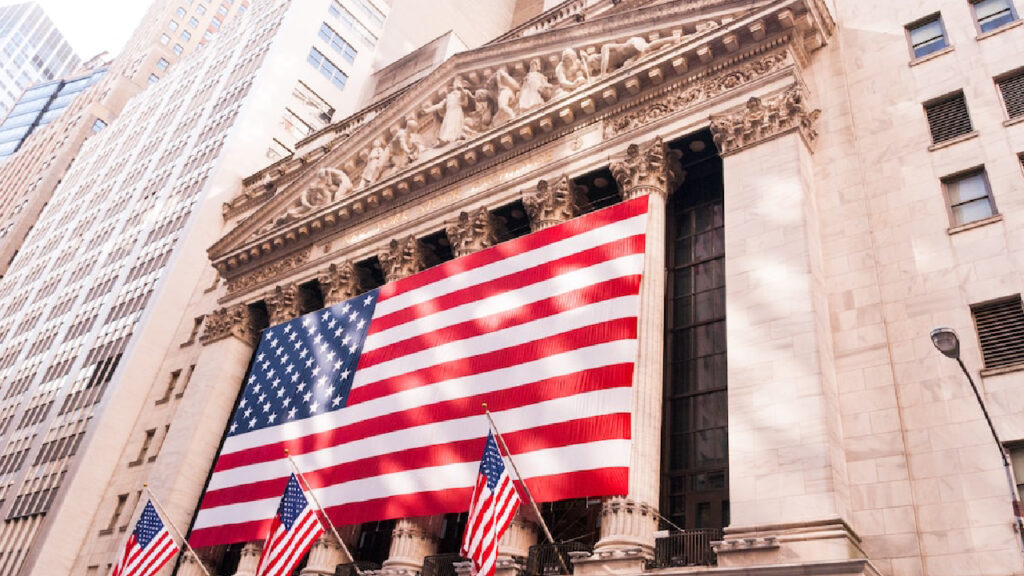Tech stocks continued to climb higher, and Treasury yields experienced a decline on Tuesday following a preliminary agreement over the weekend to raise the U.S. debt ceiling.
Investors are eagerly awaiting the implementation of the deal reached by President Biden and House Speaker Kevin McCarthy, which needs to be executed by June 5. Failure to do so, according to Treasury Secretary Janet Yellen, would result in the U.S. being unable to meet all its financial obligations on time. The next crucial step involves the legislation being passed by Congress, although potential procedural obstacles and opposition from lawmakers could pose challenges.
The yield on the 10-year Treasury note, which serves as a benchmark, reversed its trajectory after rising over the weekend. It concluded Tuesday at 3.697%, a decrease from the previous close of 3.820%. Additionally, the yield on one-month Treasury bills fell to 5.224% from 5.496% prior to the debt ceiling agreement.
The stock market demonstrated mostly positive movement, driven by enthusiasm for companies involved in artificial intelligence and the ongoing preference for major tech stocks. The Nasdaq Composite, driven by these factors, experienced a 0.3% increase. The S&P 500 edged up slightly by less than 0.1%. On the other hand, the Dow Jones Industrial Average, a blue-chip index, declined by approximately 51 points, or 0.1%.
Get Wall Street Journal 2-Year Print Subscription for $480
Nvidia, the chip maker at the forefront of the artificial intelligence boom, saw a significant gain of 3%. At one point during Tuesday’s trading, Nvidia’s shares reached a level that bestowed upon the company a market capitalization of $1 trillion, a rare achievement among semiconductor companies.
Rival chip makers Intel and Qualcomm also experienced increases of 3.4% and 5.1% respectively. Netflix and Tesla, two other major technology stocks that have dominated the market in recent years, each recorded gains of more than 3%.
“Tech is trading like safety stocks because you had a bank crisis,” said Alex Atanasiu, portfolio manager for Glenmede Investment Management.
Apart from their consistent success over the past several years, investing in the future profits of prominent tech companies like Microsoft and Apple becomes more appealing when interest rates are lower. The anticipation of potential bank failures has led investors to anticipate a pause or even a reversal in interest rate hikes by the Federal Reserve. This scenario has caused the market to become uncomfortably top-heavy, prompting Atanasiu to advise his clients to diversify their investments.
“Atanasiu said, “If you go back 100 years, there were really only three periods the market was this concentrated: the Internet bubble, the 1920s, and today.”
Phil Blancato, the chief executive of Ladenburg Thalmann Asset Management, also expressed caution regarding the stock market rebound in 2023, as only a few stocks have been responsible for driving it.
Get WSJ Print Edition Get The Wall Street Journal Newspaper for $318
He stated, “Cash is your friend right now, and dividend stocks. Be paid to wait around; there’s too much uncertainty.”
Energy shares, which have been the worst-performing group in the S&P 500 this year, once again experienced weakness as fuel prices declined.
U.S. oil futures for July delivery dropped by 4.4% to close at $69.46 a barrel. The benchmark domestic crude price has fallen by 39% compared to a year ago, primarily due to abundant supplies and an uncertain growth outlook. Natural-gas futures closed 3.7% lower at $2.327 per million British thermal units, a 71% decrease from a year ago, largely attributable to mild weather conditions.
Shares of EQT, the largest U.S. gas driller, declined by 2.8%, while oil producer APA saw a 3.

